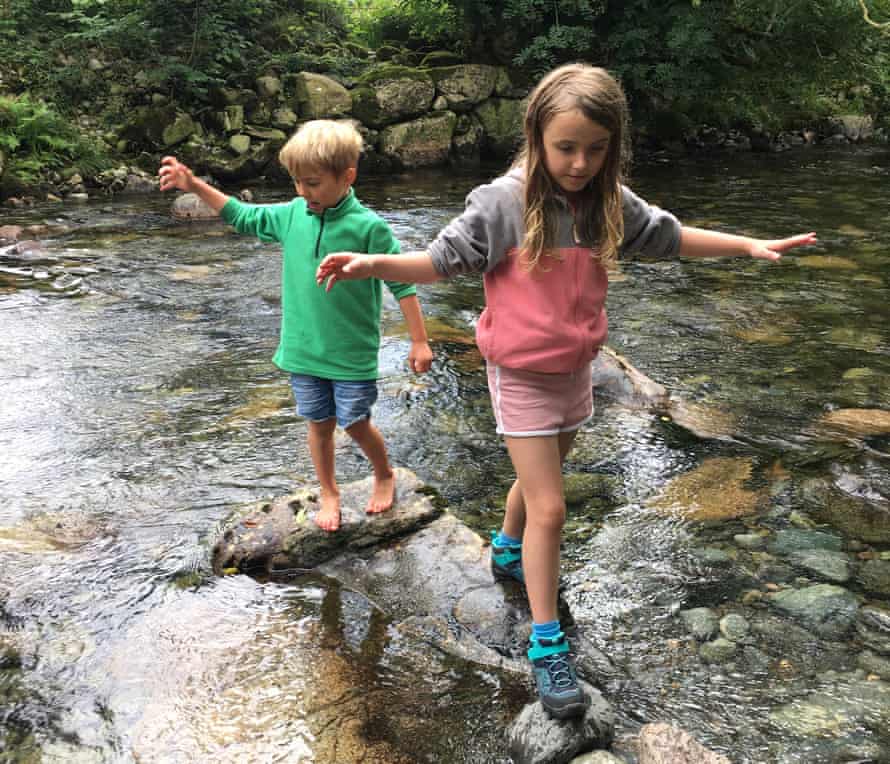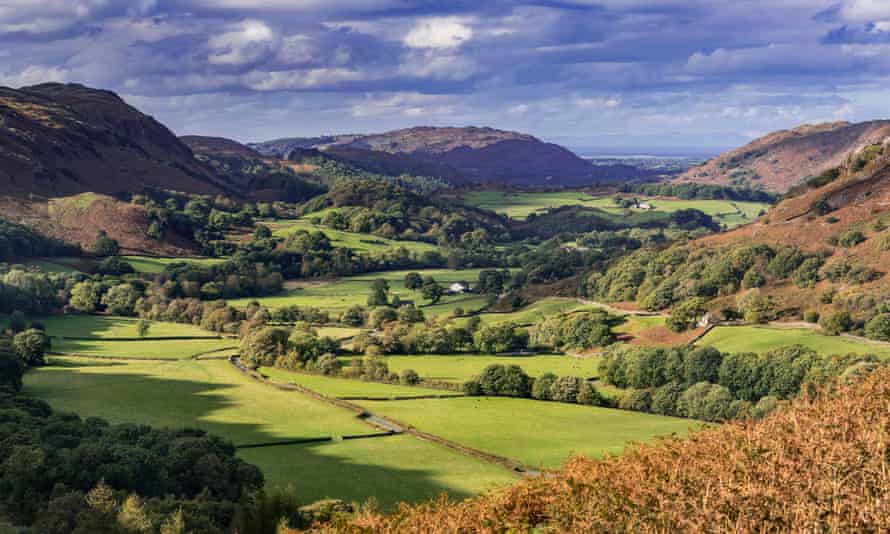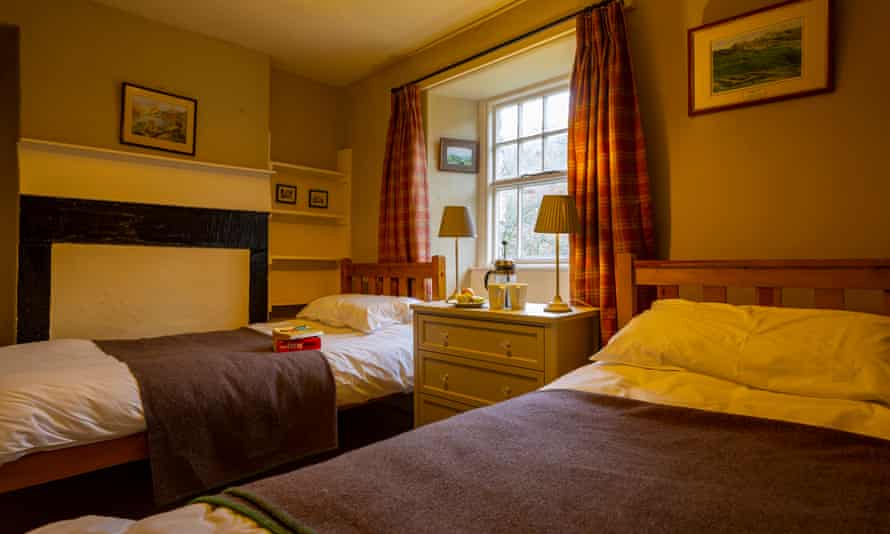“The question comes almost as soon as we step inside the remote cottage in the western Lake District: “Where’s the telly?” The door of the holiday cottage in Eskdale opens straight into the tiny lounge, and in the space where the TV should be there’s only a simple fireplace, a wooden bookcase stuffed with maps and nature books, and a couple of high-backed armchairs.
“Well, can we go on the iPad then?” is the next request. Then, when they’re informed that no, we didn’t bring it, comes, “Can I go on your phone?” There is a look of confused disbelief on my children’s faces when I explain that there’s no internet, no computer, not even a phone signal, and that, in fact, we’re not going to be looking at screens of any sort for our entire week-long stay.
They are young enough to not immediately kick off and storm out, but I imagine the scene would be rather different if they were teenagers.

Doing a digital detox wasn’t my main motivation for escaping to this remote hideaway – the thrilling scenery and sense of isolation are the big draws – but the lack of wifi is a huge bonus. Though my children are only six and eight, their predilection for screen-based entertainment is increasingly tiresome. They may not yet have their own mobiles or tablets, but the shows they like are streamed online, they long for free rein on YouTube, are desperate to join in the school craze for FitBits, and adore “doing funny faces” – creating long strings of emojis on my phone to text to their friends (or rather their friends’ parents, who are bombarded with messages of 200 watermelons). Most of their homework is done online. The digital world encroaches. Putting a complete, non-debatable stop to it for a while feels essential.
I’m not alone in craving this. January’s flood of wellbeing-related travel publicity contains more mentions of digital detoxes than ever, with tour operators such as G Adventures predicting it as a huge trend, exacerbated by lockdowns. All that Zooming, digital home-schooling and Netflix-bingeing made it seem like every aspect of our existence was lived online. Many of us feel screen-sick, desperate to disconnect.

My family’s antidote in recent years has been to escape to various off-grid Cumbrian cottages: this is our second stay at National Trust-owned Bird How, which is on a quiet lane that ends at the next farm. It is basic. The mattresses are hellish – a detail much lamented in the visitors’ books – and there’s no bathroom, only a sani loo in a cobwebby space beneath the cottage, accessed from the outside (no fun at 3am in torrential rain), and a shower bag that you fill from the kitchen tap (there is hot water and electricity) and hook up outside, in view of the occasional rambler.
All of this creates a sense of adventure, of course, and with no other building in sight, it feels like you have this phenomenal valley to yourself.
After their initial shock, the kids get by without watching Avatar: The Last Airbender with surprising ease. We hang out in the wild garden, through which a small stream trickles, with novels and colouring books, and eat on a picnic bench under the tree. We go hiking, and my daughter embraces wild swimming, throwing herself into freezing Eskdale pools, secret canyons in neighbouring Duddon valley and any filthy-looking moorland pond.
At night we watch for bats and the bright headlamps of drivers tackling the terrifying Hardknott Pass above: they sometimes bob slowly down in reverse when they lose their nerve.
As the week goes on, complaints about the lack of screens are more easily quashed by the suggestion of a game of Uno or a walk to the Brook House Inn for ice-cream.

The surrounding fields come into their own for imaginary play, even if it is TV-inspired – I spend a huge amount of time pretending to be wildlife presenter Steve Backshall chasing rare animals – but at least we’re tearing down grassy slopes and scrambling along streams in the process.
My partner and I take turns to go out running, and on one of mine, up a bracken-choked path on the valley’s opposite flank, I call across to the others, barely visible at the cottage. I’m overjoyed to catch their hoots of response on the wind, so take off my jumper and wave it madly like a flag, rewarded by the blur of red cloth their ant-sized forms wave back. This rudimentary communication, not unlike that used by Roman soldiers stationed nearby at Hardknott Fort 2,000 years ago, gives me a burst of happiness no number of Instagram likes could match.
It may be tougher to convince older children and teenagers that a spell with no wifi is a good thing, but growing awareness of the mental-health benefits of switching off, studies of the detrimental effects on adolescent brains of social media and overuse of technology, and the way wellbeing is in vogue may make them less resistant than you might expect. Many have embraced mindfulness, yoga and veganism – why not this?
When our tech habits are so deeply ingrained, we can’t rely on flaccid promises to use our phones a bit less. Going somewhere like Bird How means there’s no choice. Perhaps like dry January, we must force these experiences on ourselves. A cold turkey digital detox can’t be argued with, especially when it comes with such appealing trimmings.
Bird How sleeps four, from £499 a week, nationaltrust.org.uk




